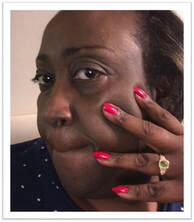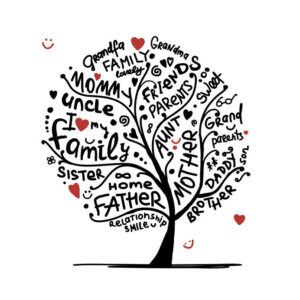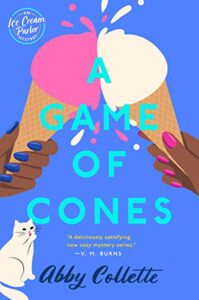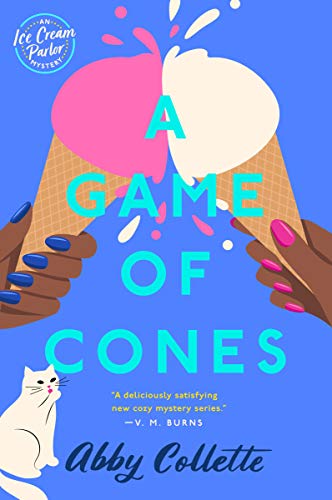
In most books I write, my protagonists are well-educated women, and more often than not, surrounded by family and who have a close, non-antagonistic relationship with the mother figures in their lives. I write these characters, I believe, because of the influences and effects my mother, and hearing the stories of her upbringing, has had on me. They seem to be entrenched in my own designs when bringing my characters to life. Yet, this was something that I never realized on my own. It was something that readers discovered in my stories and brought to my attention. It was, I found, just part of who I am. And as Mark Twain suggested, as writers we should write what we know.
My mother was born in 1914 in Birmingham, Alabama during the Jim Crow error. It was a time that was hard for blacks, and doubly hard if you were a woman. By 1916, my maternal grandmother, Nancy Hill, had became ill after the birth of her sixth child and died. My grandfather, obviously feeling incapable of raising his children, four of which were girls, split them up between three of his sisters and one of his deceased wife’s sister. That action more than one hundred years ago has defined not only who I am, but kinds of characters I write.
My mother was taken in by a paternal aunt, Eva Wilson, when she was two years old. By the time she was twelve, this aunt, who she now called Mama, had also taken in two of her grandchildren. The three of them grew up as siblings and it was the start for her, through what I gathered, knowing the importance of family no matter how frayed or tenuous the connection that made them so.
I sat often at the proverbial knee of my mother and listened to her stories. She told me how her father would go and visit the homes of where he’d left his children and how after she’d gotten older and her father passed away, she took up that mantle. She had one sister, Willie Pearl (whose twin died at age four the same year as their mother) hadn’t landed with an aunt who was as kind as Eva. My mother recalled saving biscuits for her sister, sometime as long as a week, wrapped in a cloth napkin and hidden in a pantry. She did it because she knew Willie Pearl wasn’t getting as much food as she did. A bittersweet memory for her because the biscuit stale, and more likely than not thrown out if discovered, was a source of joy and delight to her older sibling.
This understanding of the care and attending of extended family was never forgotten by my mother. It became ingrained in who my mother was and passed down to her children. And she lived it every day of her life.
In 1943, after moving with her husband and two young daughters to Cleveland, Ohio during the Great Migration, my mother welcomed family and friends into her home. They too made their trek from the South to the industrialized city of the North to stay until they found jobs and homes of their own. My mother was happy to help. All, by the time I came along in the late fifties, part of our family.
In my books, my women protagonists (unlike my mother who didn’t have a twelfth-grade education) are well-educated and while they sometimes lose their way, they have all made accomplishments in the world. I suppose the women in my books in that respect, are more like me. I am a college graduate and have two post-graduate degrees. Yet my characters having them (as well as myself, I suppose) stems from the history of my family and the strength of the mostly female members of it.
My father took sick when I was nine months old, leaving my forty something mother, who still live in a world that deemed her a second-class citizen, had to make a way for a fatherless young child after raising her other children and becoming a grandmother. She was able to buy several homes on her own, make sure I got an education and survive in a world that sometimes worked against her just based on her race and gender.
But it never stopped her from extending family and the care and love that came with it to others. It seemed to be a mission of hers to help other young families find their way.
I remember once coming home and finding a young man lying on the floor, asleep in front of the fireplace. I asked my mother who it was. She titled her head and thought for a moment before speaking. “I don’t remember his name,” she said. “But he’ll be staying here for a while because he doesn’t have anywhere else to go and he needs help.”
The very first story I wrote was In the Beginning, a alternative history mystery about a biblical archaeologist who discovers a historical secret so large and devastating that it could our beliefs. Even though at the time, I didn’t know what it meant to “show and not tell” (a very big no-no in writing) and hadn’t ever considered there were rules to writing, I instinctively made my main character a part of a large, caring family.
And that continues, even after writing nearly thirty books and short stories. For instance, in another one of my series, Romaine Wilder Mystery, the main character is raised by a maternal aunt after her parents are killed in a car accident. I never gave a thought to my family’s history (so I thought) when I concocted that story. It was what materialized as I mapped it out in my head. Indeed, until I was asked by another to participate on a panel about adoption. I sputtered at first, nearly turning down her invitation because there wasn’t anyone in my family who had been adopted. Honestly, I hadn’t even realized that my character in that series had been part of a kinship adoption, just as my mother had. The meaning of family, which I incorporate into my stories, have characters who have familial relationships that without question blur the lines. And I think, for me, it is because of my history that my notion of family is stretched more than most.
I have, and am sure will, continue to write with the teachings my family’ history has offered me. Directing my stories and certainly my characters along that same path.
Certainly, my An Ice Cream Parlor Mystery tells the story of a generationally owned business where the family is close-knit and had chipped in to help take care of an ailing grandmother who suffered from Alzheimer’s takes on the attributes of how my family has employed. And in my newest cozy mystery series, I tell the tale of a pair of twins, separated at age two—one adopted and one not—that find each other, opening a bookshop and soul food café and of course, solve murders.
I am happy to share, even in bits and pieces, splattered in all of my books my sense of family and our history.
Abby Collette
Find out more about Abby Collette and her amazing books on her website!
Visit her on her author Facebook page!
And don’t miss her Ice Cream Parlor Mysteries A GAME OF CONES out today!!! 
In this charming mystery series set in an ice cream shop, no case is too cold to crack!
Bronwyn Crewse is delighted that Crewse Creamery, the ice cream shop her family has owned for decades, is restored to its former glory and serving sweet frozen treats to happy customers in the picturesque small town of Chagrin Falls, Ohio. But when a big city developer comes to town intent on building a mall, a killer with a frozen heart takes him out.
After literally stumbling across the body, one of Win’s closest friends becomes the prime suspect, and to make things worse, Win’s aunt has come to town with the intention of taking command of Crewse Creamery. Even though Win has a rocky road ahead to help her friend and keep her ice cream shop, it’ll take more than a sprinkle of murder to stop her from solving the crime and saving the day.
Abby Collette is the Wall Street Journal bestselling author of fabulous cozy mysteries. Her newest Ice Cream Parlor mystery series stars a young, black female sleuth serving frozen desserts and stopping ice-cold killers. The first book A Deadly Inside Scoop (2020) got fans screaming for ice cream everywhere, and now we’re thrilled to introduce you to her second installment, A GAME OF CONES (Berkley Trade Paperback; March 2, 2021), which will be served up this March. Bronwyn “Win” Crewse is the owner of her family’s ice cream shop in Ohio, and between solving crime and serving up treats, she spends a lot of her time with her close, tight-knit family and female friends. A family person herself, Collette is perfect to talk about women who influence her during Women’s History Month or how her writing is influenced by family.






